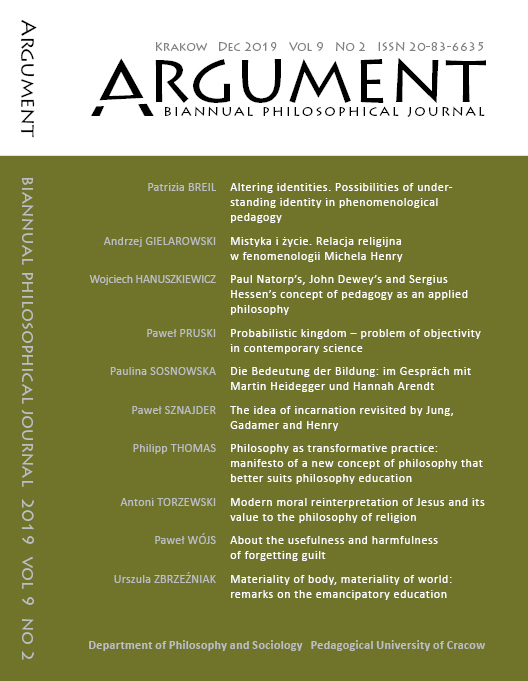The idea of incarnation revisited by Jung, Gadamer and Henry
DOI:
https://doi.org/10.24917/20841043.9.2.7Słowa kluczowe:
Hans‑Georg Gadamer, incarnation, Michel Henry, Carl Gustav Jung, individuation, language, bodyAbstrakt
The idea of incarnation is one of the Christian theological concepts that has exerted the strongest influence on philosophical thought in Europe and which was repeatedly referred to in the twentieth century. The paper presents three reinterpretations of this biblical category. Carl Gustav Jung interprets incarnation in the spirit of Gnosticism, as a process of the psychological individuation of God and man; Hans-Georg Gadamer employs the idea of the inner Word, Verbum interius, to analyse the dogmas of incarnation and the Trinity: seeking in them a solution to the mystery of language; while Michel Henry reaches for the Bible and theology to face anew the issue of human corporeality. These attempts to rethink the theological aspects of the Incarnation of the Son of God reveal the role of this notion in the development of modern psychology, the hermeneutic philosophy of language as well as in anthropology. At the same time, a philosophical reinterpretation of incarnation provides an impulse to rephrase the questions about the relationship between philosophy and theology, as well as faith and reason, good and evil, the relationship between God and man, the mind and the body, as well as speech and thinking. On the other hand, provisional answers to these questions may rekindle theological thought and contribute to the revival of reflection on issues such as the Holy Trinity, the Immaculate and Virgin Conception, or a privation theory of evil. The article provides a starting point for just such a multi-faceted analysis.


